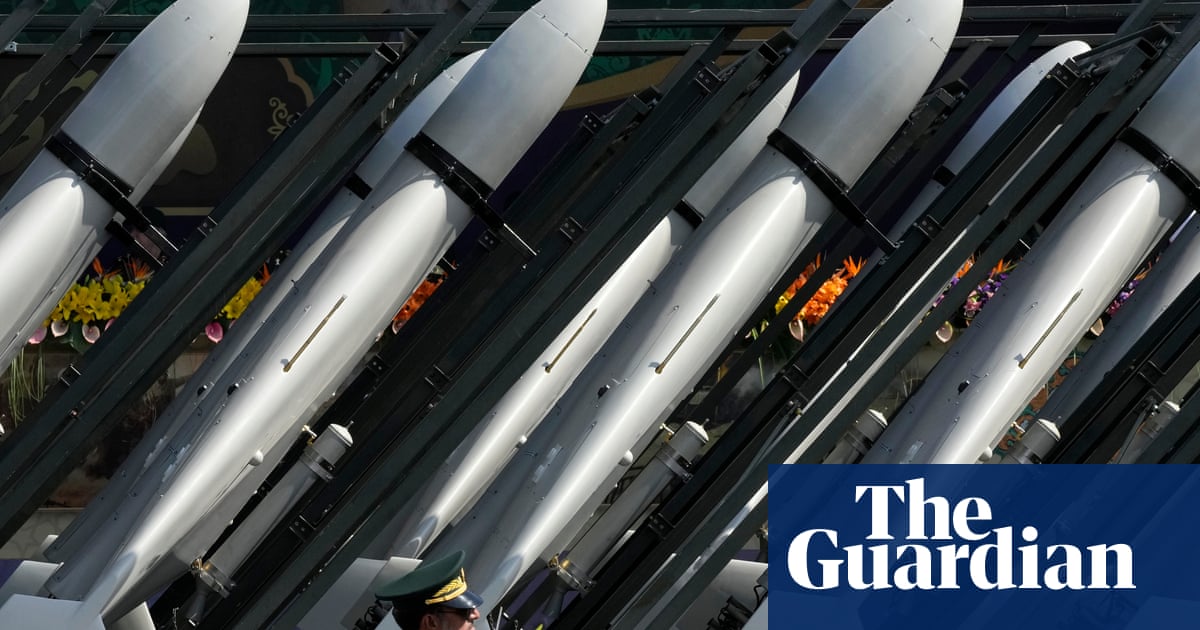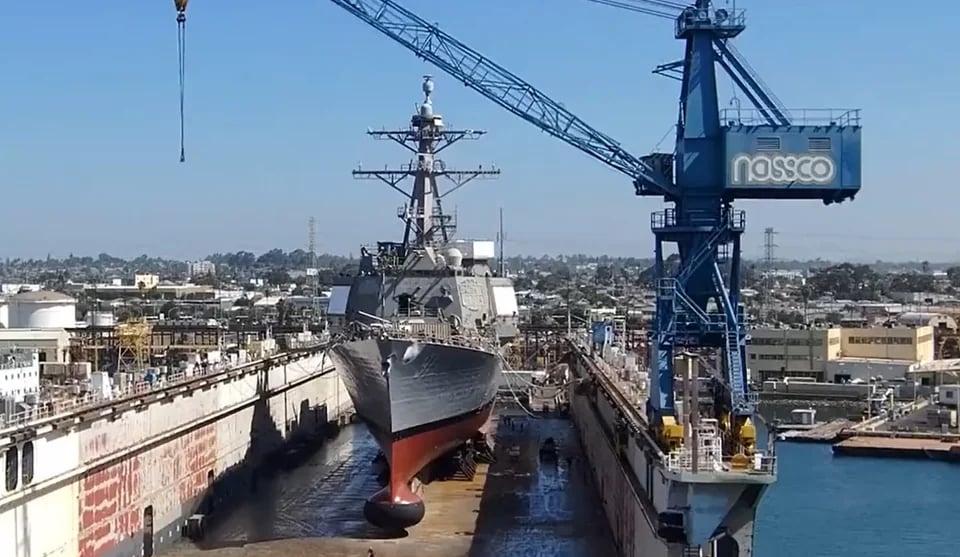Soldato
- Joined
- 19 Oct 2007
- Posts
- 3,709
- Location
- Delete *.*
Yes they're already in the Stone Age, so I guess we're bombing them back to the Pre-Stone Age.
U.S. Central Command forces, alongside UK Armed Forces and with the support from Australia, Bahrain, Canada, Denmark, the Netherlands, and New Zealand conducted strikes against 36 Houthi targets at 13 locations in Iranian-backed Houthi terrorist-controlled areas of Yemen

I would have thought the US knew they weren't going to have the monopoly on drones forever and would develop something cheaper than $2 million missiles.
It is weird how so few people really seem to understand drones in warfare especially those who have a long history in the armed forces seem slow to recognise the situation with them.
I would have thought the US knew they weren't going to have the monopoly on drones forever and would develop something cheaper than $2 million missiles.

And of things that will bite, yeah.

If that happened I would imagine the US would flatten the whole area - especially if Trump is at the wheel.It doesn't seem like the West has a cost effective answer to the "axis". With Russia being on a wartime footing they have the manufacturing capabilities.
So do Iran with their cheap drones. Seeing a lot more innovation from them e.g. Shahed-238.
I would have thought the US knew they weren't going to have the monopoly on drones forever and would develop something cheaper than $2 million missiles.
Uncomfortable to think but their military aura will be damaged if the Houthis are successful in taking out one of their ships.

Deadly, cheap and widespread: how Iran-supplied drones are changing the nature of warfare
Attacks using Shahed drones have been carried out by militias in the Middle East and Russia in Ukrainewww.theguardian.com
Wonder if there's any thoughts around giant party poppers as last line of defense? Have some kind of sensor that can detect a drone at a minimum distance, fire off the party popper putting lots of strandes in the air to tangle the propellers and take down the drone?It would be interesting to see how effective a laser weapon is, against a drone or missile that's coated in highly reflective or ablative material.
Although I imagine the sorts of things it's built to defend against aren't exactly cutting edge
Why do you think that? I'd expect just about every major defence manufacturing firm will be developing anti-drone technology whether it's electronic counter-measures to offensive weapons.whereas I don't expect the US warships to have changed much.
There are some solutions in the pipeline:


 www.thedefensepost.com
www.thedefensepost.com
Why do you think that? I'd expect just about every major defence manufacturing firm will be developing anti-drone technology whether it's electronic counter-measures to offensive weapons.

It is weird how so few people really seem to understand drones in warfare especially those who have a long history in the armed forces seem slow to recognise the situation with them.
But they will have changed?The cost, logistics, time of upgrading an existing ship e.g.

Navy Destroyer Modernization Program Could Cost $17B, Take Up to 2 Years Per Hull - USNI News
ARLINGTON, Va. – The plan to upgrade the Navy’s fleet of Flight IIA Arleigh Burke guided-missile destroyers with new radars and electronic warfare suites is estimated to cost about $17 billion and take anywhere from a year and a half to two years to upgrade each warship, USNI News has learned...news.usni.org
Drone technology is relatively new and advancing quickly, any defensive tech that is developed will become outdated quickly too.
Whoever wrote the second series of ITV's Trigger Point has been thinking the same thingDrones do seem like a paradigm shift, similar to the machine gun. Orthodoxy will struggle with clouds of, or even small numbers of, low tech drones- we're already seeing that.
I see low-cost, low- technology drones as a very worrying development. Quick and dirty could lead to real issues.

It would be interesting to see how effective a laser weapon is, against a drone or missile that's coated in highly reflective or ablative material.
The biggest issue with Lasers right now (outside of cost, range limits and development time) for practically destroying a target is the time taken for the beam to actually have an effect on a target. A bullet, missile or shrapnel dramatically effects a target within microseconds of an impact, whereas a Laser right now still takes seconds to have an effect and with swarms you may not have the time to continually keep a single drone targetted for the time required. So if you add the bits you mentioned to a drone (even simple chrome/mirrored coating) it'll make that "time till damage" equation way less useful than the more simple "throw something physically at it" version.
It should be noted that two of the main reasons drones have been so incredibly effective in Ukraine are because (A) the most prolific supplier of drones to Ukraine (Turkey) operate Russian AA systems and so it makes sense that their drones would be additionally effective at exploiting the weaknesses of such systems. And (B) because in an effort to save money Russia scrapped almost all of their ZSU anti air units (imagine somebody stuck a Phalanx CIWS on top of a T-55 hull and you're basically their, functionally if not visually) because they thought that they wouldn't need to defend their ground units against visual range air attack due to always fighting with air supremacy and having mobile SAMs.I don't really understand the technology, but it's clear from Ukraine that commercially available equipment is effective.

